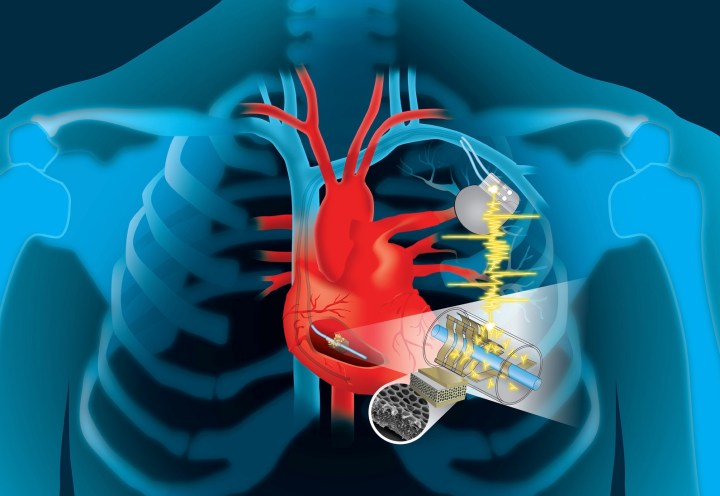
It’s the perfect message before Valentine’s Day: The human heart is so powerful that it can even charge up the batteries of our most important devices. At least, that’s what is suggested by a new project carried out at Dartmouth College, where engineers have built a tiny energy-harvesting gizmo that is capable of converting the heart’s kinetic energy into electricity which could be used to power an assortment of implantable devices. These could potentially include cardiac pacemakers, defibrillators, and assorted other devices which currently need to be replaced every few years in order to swap out their depleted batteries.
“In this work, we developed a new design for energy harvesting that can be miniaturized and integrated within existing pacemakers,” Zi Chen, an assistant professor in the Thayer School of Engineering at Dartmouth, told Digital Trends. “It uses dual-cantilever structured thin films made of piezoelectric materials for effective conversion of kinetic energy into electrical energy. The heart’s motion results in the motion of the pacemaker lead, and hence the deformation of the thin films, which is then converted into electrical energy by virtue of the piezoelectric material.”
Chen described the immediate applications as being for devices like the aforementioned pacemakers. However, he noted that eventually the work could also be used to provide juice to “any other implantable biomedical devices that need a sustainable power source.” While we’re probably getting ahead of ourselves, this opens up all kinds of exciting possibilities for various cyborg technologies that could be powered by nothing more than the human body.
“We have [already] conducted the first round of animal studies and are working on improving the efficacy, scalability, and multi-functionality of the device,” Chen said. While he didn’t rule out the possibility of commercialization in the future, he said that this is likely to take a while to achieve. Getting there will also require that the team conduct additional experiments with animals, prior to moving on to human tests.
A paper describing the work, titled “Energy Harvesting: Flexible Porous Piezoelectric Cantilever on a Pacemaker Lead for Compact Energy Harvesting,” was recently published as the cover story for the journal Advanced Materials Technologies.


